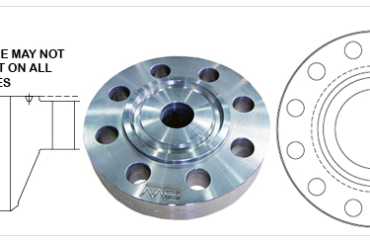
Alloy steel flanges play a crucial role in various industrial applications due to their unique properties and exceptional performance characteristics. These flanges are made from a combination of iron and carbon, as well as other elements such as manganese, silicon, and nickel, which enhance their strength, durability, and corrosion resistance.
One of the key impacts of alloy steel flanges on industrial applications is their high strength and toughness, which makes them ideal for use in demanding environments such as high-pressure and high-temperature applications. The alloying elements in these flanges help to improve their mechanical properties, allowing them to withstand extreme conditions without compromising their structural integrity.
Furthermore, alloy steel flanges exhibit excellent corrosion resistance, which is essential in industries where exposure to corrosive substances is common. The addition of elements such as chromium and molybdenum helps to protect the flanges from oxidation, rust, and other forms of deterioration, ensuring long-term performance and reliability.
Another significant impact of alloy steel flanges on industrial applications is their versatility and compatibility with a wide range of piping systems and equipment. These flanges come in various sizes, shapes, and types, making them suitable for use in different industrial sectors, including oil and gas, chemical processing, power generation, and petrochemical industries.
 Language
Language Espanol
Espanol English
English Italian
Italian عربى
عربى
 Skype: chinamaker99
Skype: chinamaker99  Tel: 86-316-5120812
Tel: 86-316-5120812  Email:
Email:  Whatsapp:
Whatsapp: 
